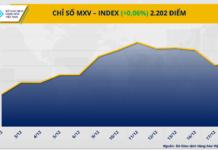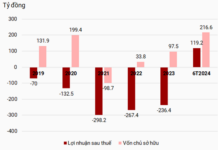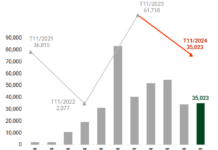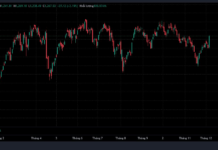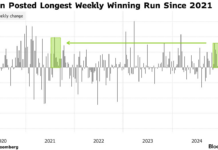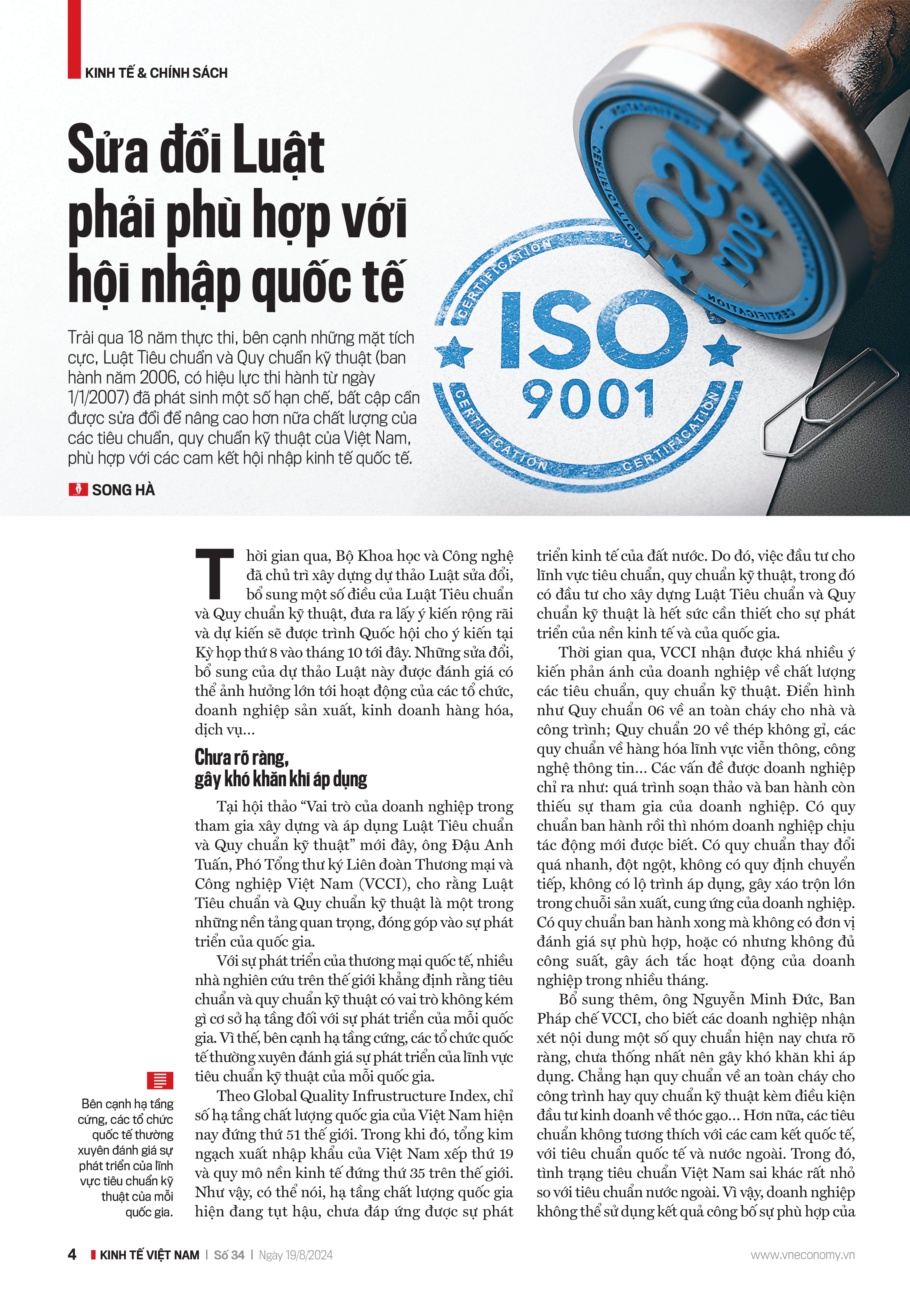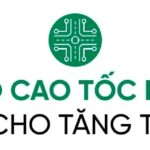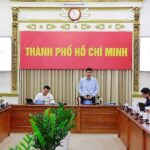Recently, the Ministry of Science and Technology has been leading the development of a draft law to amend and supplement several articles of the Law on Standards and Technical Regulations. The draft has been widely circulated for feedback and is expected to be submitted to the National Assembly for discussion at the 8th session in October this year. The proposed amendments are considered to have a significant impact on the operations of organizations and businesses involved in the production and trade of goods and services.
LACK OF CLARITY AND PRACTICAL DIFFICULTIES
At a recent workshop on “The Role of Enterprises in Participating in the Development and Application of the Law on Standards and Technical Regulations,” Mr. Dau Anh Tuan, Vice Secretary General of the Vietnam Chamber of Commerce and Industry (VCCI), stated that the Law on Standards and Technical Regulations is one of the important foundations contributing to the country’s development.
With the growth of international trade, many global researchers emphasize the crucial role of standards and technical regulations, comparable to that of infrastructure in a country’s development. Hence, in addition to physical infrastructure, international organizations often assess the development of the standards and technical regulations landscape in each country.
According to the Global Quality Infrastructure Index, Vietnam ranks 51st in the world for its national quality infrastructure. Meanwhile, Vietnam’s total import and export turnover ranks 19th, and the scale of its economy ranks 35th globally. This indicates that the country’s quality infrastructure is lagging and failing to keep up with its economic growth. Therefore, investing in the field of standards and technical regulations, including the development of the Law on Standards and Technical Regulations, is imperative for the economy and the nation’s progress.
Over time, VCCI has received numerous feedback from businesses regarding the quality of standards and technical regulations. Notable examples include Fire Safety Standard 06 for buildings and constructions, Standard 20 for stainless steel, and standards for goods in the telecommunications and information technology fields. Businesses have pointed out issues such as a lack of their involvement in the drafting and issuance processes. In some cases, affected businesses are only made aware of the existence of certain standards after they have been issued. There have also been instances of sudden and rapid changes in standards without transition periods or implementation roadmaps, causing significant disruptions in business production and supply chains. Additionally, there are instances where standards are issued without accredited conformity assessment agencies, or with insufficient capacity, resulting in bottlenecks in business operations for several months.
Furthermore, Mr. Nguyen Minh Duc from VCCI’s Legal Department added that businesses have commented on the lack of clarity and inconsistencies in the content of some standards, making them challenging to apply. For instance, this is evident in the fire safety standard for constructions and the technical standards accompanying business conditions for rice trading. Moreover, these standards are incompatible with international commitments and standards. In some cases, Vietnamese standards differ only slightly from foreign ones, leading to unnecessary costs for businesses. For example, they are unable to use conformity assessment results from foreign countries and must conduct additional tests, as in the case of Vietnamese standard TCVN 1651:2008 for construction steel.
The draft law also contains several clauses that require clarification and administrative procedure reduction for businesses in the process of evaluating and confirming product conformity. A notable example is Article 3.2 of the 2006 Law on Standards and Technical Regulations, which states that the purpose of issuing technical regulations is to ensure the safety, hygiene, and health of humans; protect animals, plants, and the environment; safeguard national interests and security; protect consumer rights; and meet other essential requirements.
Additionally, the draft law lacks provisions for feedback, acceptance, and explanation of business opinions by competent authorities. Businesses provide feedback but remain uncertain about how their input will be addressed. They also highlight the lack of rationality in certain regulations, where technical regulations exceed what is necessary or abuse standards instead of using technical regulations.
PROPOSAL TO ADOPT INTERNATIONAL STANDARDS
Broadening the perspective to the international context, Mr. Nguyen Huu Dung, Vice President of the Vietnam Association of Testing Laboratories, shared that after nearly 20 years, the quality management of goods based primarily on technical regulations has become outdated, especially given Vietnam’s participation in several new-generation trade agreements. Therefore, it is essential to amend the Law on Standards and Technical Regulations with a focus on determining a suitable method for managing the quality of goods in the current context.
This involves urgently transforming state-owned conformity assessment organizations into joint-stock companies to ensure fairness between private and state-owned conformity assessment organizations. By doing so, all conformity assessment organizations operating in Vietnam will adhere to international standards. This upholds the principle of the International Organization for Standardization (ISO): “One standard, one test, accepted everywhere,” facilitating the production and trading activities of Vietnamese enterprises.
Mr. Nguyen Hong Uy from the European Chamber of Commerce (Eurocham) also pointed out some inconsistencies. For instance, Clause 2, Article 35 of the draft Law on Standards and Technical Regulations stipulates that the procedure for amending and supplementing technical regulations follows the same process as issuing new technical regulations, which can take several years. This hinders businesses from innovating their products when international standards have already evolved, especially regarding the standards of international organizations where Vietnam is a member and has voted in favor of issuance…
This article was published in the Vietnam Economic Magazine, Issue 34-2024, released on August 19, 2024. Please visit the following link to read the full issue: here.
https://postenp.phaha.vn/chi-tiet-toa-soan/tap-chi-kinh-te-viet-nam
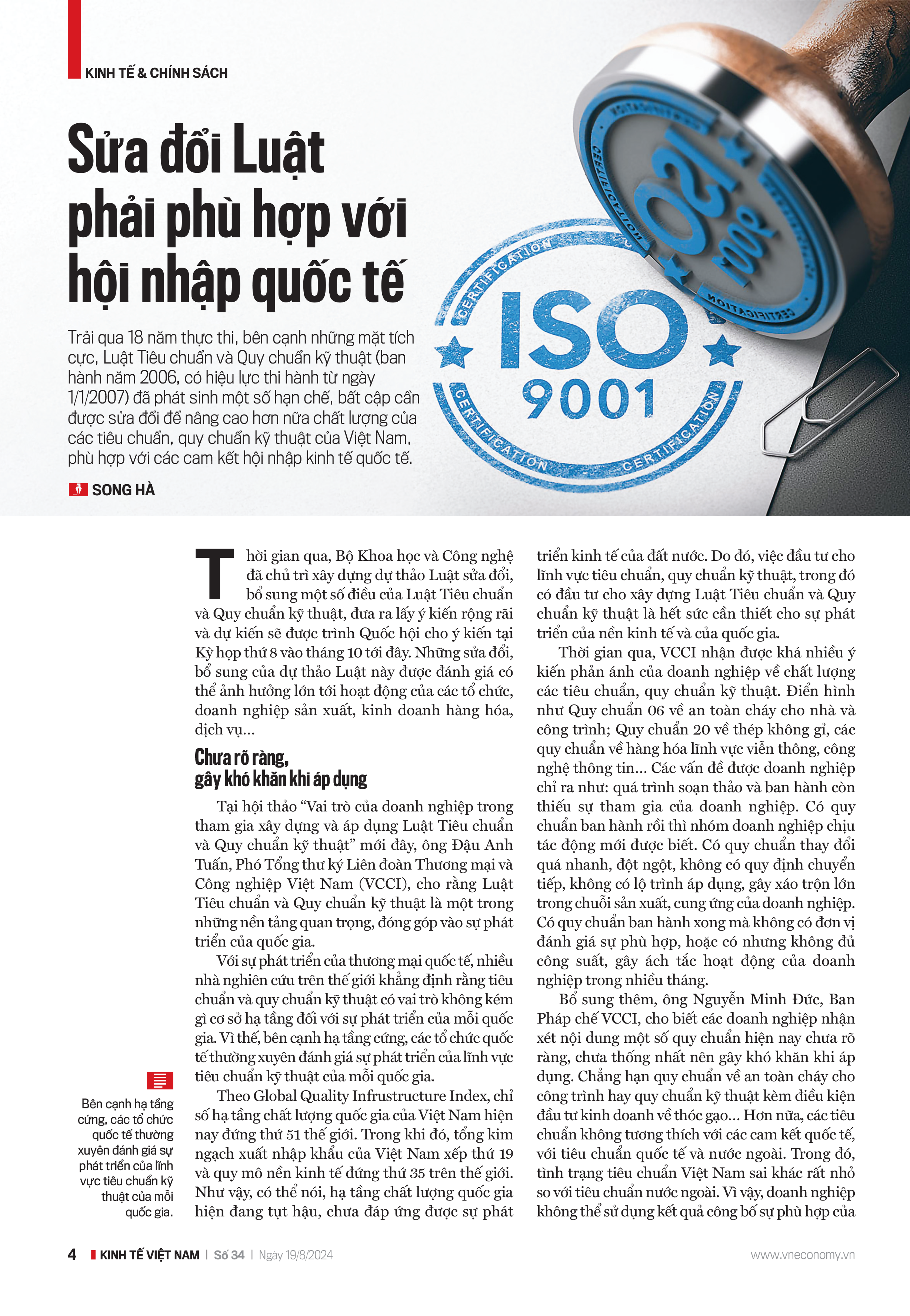
Nam A Bank achieves key targets for 2023, poised for breakthrough in the new year.
With a sustainable development strategy, Nam A Bank (code NAB) has achieved its key targets in 2023, ranking among the top 12 joint-stock commercial banks with the highest growth rate and creating a stable momentum for its new journey.
SeABank strengthens senior leadership team for sustainable growth
On February 23, 2024, the SeABank Board of Directors (BOD) issued resolutions to revamp its senior leadership team, aiming to vigorously implement the sustainable development strategy (ESG) with pillars focusing on Banking Governance, Risk Management, Enhancing Workforce Capability, Organizational Culture, Social Welfare, and Environmental Impact.
BIDV secures record-breaking 9 awards for Best Retail Bank in Vietnam
Vietnam Investment and Development Bank (BIDV) has been named the “Best Retail Bank of the Year 2024” by The Asian Banker magazine, thanks to its impressive business results and outstanding services for individual customers. The award was presented to BIDV at the Excellence In Retail Financial Services Global Awards Ceremony 2024 held in South Korea on March 7, 2024. BIDV is the only bank in Vietnam to receive this prestigious award 9 times.
Vietnam’s First Mixing Ingredient Brand Wins Superior Taste Award
For the first time at the prestigious Superior Taste Award, five products from Lúave, a leading brand in the Vietnamese Beverage Ingredients industry, have been honored. This achievement is a significant milestone in putting the Vietnamese Beverage Ingredients industry on the global food and beverage map.








